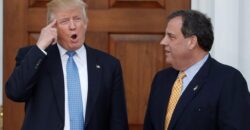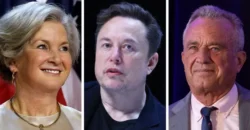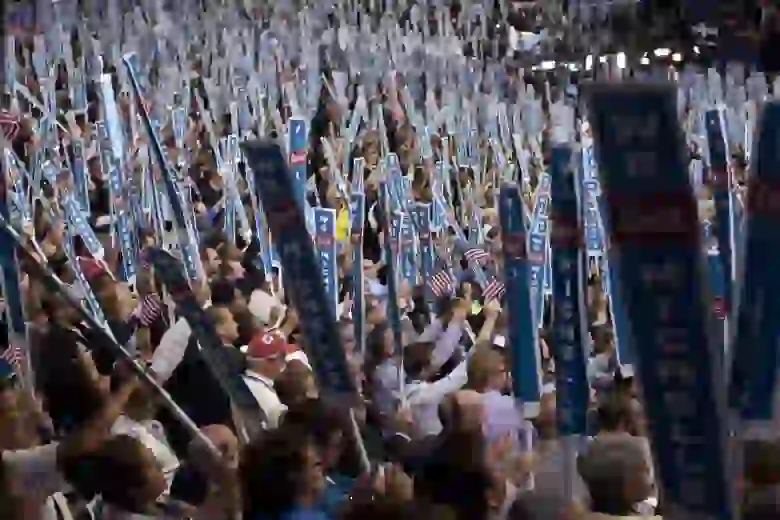Healthy political parties make our democracy accessible and responsive.
For a healthy democracy to function effectively, it needs political parties.
Political parties organize varied and sometimes competing interests into coalitions
The main goal of political parties is to win elections. In a democracy as large and diverse as the United States, they can only do that by being attractive spaces where groups of voters with different interests can coalesce into blocs large enough to succeed at the polls. In the best of circumstances, this means that political parties are the institutions where various interest groups negotiate their differences in order to cooperate on election day and beyond. Thus, parties can provide a critical platform to a diverse set of voices within the electorate.
Political parties engage and inform voters
Political parties have an essential role in explaining the stakes of policy issues to their supporters, as well as in mobilizing them during and between elections. Parties work to “get out the vote” and boost participation in elections. Between elections, they provide a vehicle for people to participate in politics. Where parties establish and maintain a reasonably coherent set of policy views, the party label itself offers important information to voters on election day. Americans vote more often and for more offices than almost any other democracy, and the average voter would find it nearly impossible to research every candidate in every race. Where parties are well-connected to society and have a meaningful platform, party labels can give voters a shortcut for identifying the candidates most likely to support their interests and those of their communities.
Political parties recruit and select candidates
Prior to election day, parties have a critical role to play in elevating candidates for office who are capable of doing the job and likely to appeal to voters. At local levels, this often involves encouraging talented individuals to run for office in the first place, an important part of bolstering political participation. At state and national levels, parties are responsible for narrowing the field of potential candidates. Healthy, pro-democracy parties also assess a candidates’ commitment to democratic norms during this recruitment and selection process. Where demagogues or would-be authoritarians try to pursue elected office, political parties are the crucial first institutional barrier to those efforts.
Political parties coordinate governance
Imagine a political system in which there were no stable coalitions, governors or presidents had to work with legislatures that had little meaningful leadership, and every piece of proposed legislation required securing support one member at a time. Governing would happen at a snail’s pace (if at all) and responding quickly to important issues would be next to impossible. Political parties provide the organized “teams” that are needed for elected officials to cooperate productively.
In short, political parties can and should stabilize democracy by organizing politics and facilitating political participation. Where they do so responsibly, voters can identify the party that most closely matches their political beliefs and values and find ways to be engaged in democratic life. Office holders can rely on parties to help them cooperate with one another and govern. This engagement and efficacy helps citizens feel represented and reinforces support for democracy itself, particularly where parties uphold democratic norms among their members and leaders.










